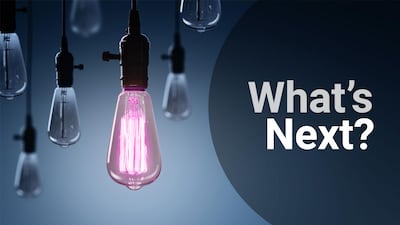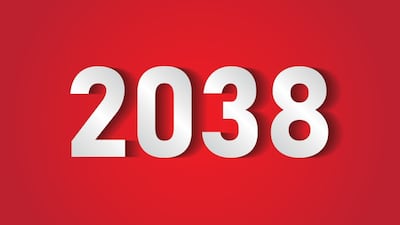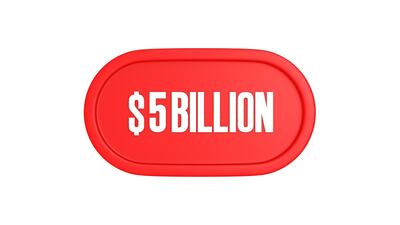Amgen Leads The Way On US Stelara Competition...
The new year will begin with a bang. Biosimilar competition to one of the largest biologic opportunities this decade, Johnson & Johnson’s Stelara (ustekinumab), is set to materialize in the US, in the form of Amgen’s Wezlana (ustekinumab-auub) which the California-based biotech can begin rolling out on the first day of January.
The US Food and Drug Administration granted approval for Wezlana in November 2023 as both a biosimilar to and interchangeable with Stelara – the first ustekinumab biosimilar to receive the green light in the US.
Earlier in 2023, Johnson & Johnson’s Janssen and Amgen announced that they had agreed to settle patent-infringement litigation over Amgen’s biosimilar. The settlement handed Amgen a license to launch its biosimilar no later than the first day of 2025.
Wezlana is only the first biosimilar to Stelara set to launch in the US in 2025, as Generics Bulletin has covered extensively.
Biocon recently became one of the latest biosimilar sponsors to win approval for an ustekinumab biosimilar, putting the firm in position to launch its Yesintek (ustekinumab-kfce) rival to Stelara. Competitors will target a brand that exceeded $10bn in global sales last year, with US sales alone growing by 9% to $6.97bn.
As part of its approval announcement, Biocon highlighted a prior settlement with Johnson & Johnson’s Janssen that would allow it to launch its ustekinumab biosimilar in the US from 22 February 2025.
Biocon’s ustekinumab launch date is the same as that gained in a settlement by partners Samsung Bioepis and Sandoz, while Fresenius and Formycon have also indicated that they can launch from this date. It is also just a day later than the 21 February date secured by partners Teva and Alvotech.
Another ustekinumab biosimilar approved by the FDA is the Imuldosa (ustekinumab-srlf) version from Accord and partners Dong-A ST/Meiji Seika Pharma. The firms had previously announced a settlement allowing a launch date of 15 May 2025, but it is unknown whether this date may be brought forward, as with Fresenius and Formycon which had initially announced a launch “no later than 15 April 2025.”
Celltrion also has a settlement with J&J, initially announced as allowing launch from 7 March 2025, but updated to February after the firm recently received FDA approval in mid-December for its CT-P43 version under the name Steqeyma (ustekinumab-stba).
...While Amgen Soliris Patent Trial Begins In Canada
Amgen is in the thick of biosimilar action in January. As well as planning to launch the first US biosimilar to Stelara, the firm will see trial begin in its patent-litigation showdown with AstraZeneca over patents shielding the originator’s Soliris (eculizumab) in Canada.
AstraZeneca’s Alexion subsidiary sued Amgen for patent infringement in Canada in May 2023, four months before the originator brought similar action against fellow biosimilar eculizumab filer Samsung Bioepis.
“Trial against Amgen is scheduled to begin in January 2025 while trial against Samsung is scheduled to begin in June 2025,” AstraZeneca has confirmed, while noting: “In July and August 2023, in Canada, both Amgen and Samsung brought actions challenging the validity of Alexion’s patent relating to the use of eculizumab in treating atypical haemolytic uraemic syndrome. Trial is scheduled to begin in November 2025.”
Lupkynis Opens Up To US ANDA Challenges
Controversial US dosing patents shielding Aurinia Pharmaceuticals’ Lupkynis (voclosporin) – the first FDA-approved oral treatment specifically for lupus nephritis – will open up to attack from ANDA sponsors from next month, according to multiple equity analysts.
Lupkynis was approved by the FDA in January 2021, with the potential for protection against generics until 2037, bolstered by patents on the treatment protocol developed for the calcineurin inhibitor in clinical trials that are also included in the drug’s label.
At the time of the brand’s approval, an executive from the Institute of Clinical and Economic Review worried that such tactics to fight off generic competition could “become a trend for companies to look for dosing algorithms as a part of their intellectual property. It’s a slippery slope for every single company coming up with a way to make that a part of their patent and that will make affordability over the long haul that much more difficult.”
Spelling out the patent landscape for Lupkynis, Bloom Burton noted recently: “Dosing method patents (US patents 10,286,036 and 11,622,991) could extend Lupkynis protection in the US until December 2037 (and Lupkynis is difficult to synthesize), however, the dosing patents could be challenged by an ANDA filer as early as January 2025 (which would trigger a 30-month stay which would end in June 2027).”
RBC Capital Markets speculated that “potential settlement(s) with generic companies could provide better visibility on LOE timelines for Lupkynis.”
Aurinia earlier this year resorted to slashing its workforce and R&D pipeline to stay afloat, having failed to find a buyer.
J.P. Morgan Roars Into San Francisco
The 43rd iteration of the famed J.P. Morgan Annual Healthcare Conference, featuring some of the largest generics and biosimilar firms alongside their brand industry counterparts, will take place from 13-16 January 2025 in San Francisco, California.
Regular attendees to the conference include major off-patent industry players such as Teva, Viatris, Amneal, Organon, Amgen, and Pfizer.
Generics Bulletin will provide detailed coverage of all the latest developments and strategic updates discussed at the event.
Boehringer Slashes US Inhaler Prices Following Scrutiny
Boehringer Ingelheim will kick off the new year by lowering the list price by an undisclosed amount for its Spiriva HandiHaler and Atrovent inhalers, as drug makers continue to face increasing political pressure to lower costs, especially in the aftermath of the passage of the Inflation Reduction Act.
The move announced in March last year came at the same time that Boehringer revealed copays for all its inhaler products would be capped at $35 per fill for patients who are commercially insured, underinsured or uninsured beginning 1 June under a new program.
Less than two weeks later, AstraZeneca announced that it was moving to cap out-of-pocket costs for its inhalers at $35 for certain patients, including Airsupra (albuterol/budesonide), Bevespi Aerosphere (glycopyrrolate/formoterol fumarate), Breztri Aerosphere (budesonide/glycopyrrolate/formoterol fumarate) and Symbicort (budesonide/formoterol fumarate dihydrate).
GlaxoSmithKline followed only weeks later with a similar scheme, naming products including Anoro Ellipta and Trellegy Ellipta, which are two products in the originator’s portfolio that have growing US sales.
Viatris in the middle of 2023 debuted its Breyna (budesonide/formoterol) as the first generic version of AstraZeneca’s Symbicort brand, while Lupin shortly thereafter launched the first US generic version of Spiriva HandiHaler.





